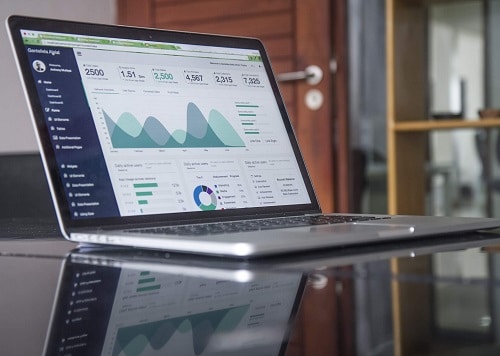Why Site Speed is an Important SERP Factor?
Visitors want to spend as little time as possible waiting for your website to load. So, to improve user experience, Google made speed a ranking factor starting with 2010.
And, because smartphones are home to more and more internet searches, mobile page speed has become more important than ever.
With each year that passes, page speed becomes more and more significant for your site’s SERP (search engine results page) position.
If, in the past, speed was just a metric that revealed how fast users get access to your website’s content. Now, it’s an important indicator of the overall experience a visitor will have on your website.
In 2021, Google released the Page Experience update to improve its algorithms. As a result, page experience became part of its ranking systems. It basically highlighted the pages that manage to offer visitors a great experience.
You can work on improving your website speed by yourself, or you can try working with professionals in the field. For example, you can search for the best drupal development agency. This way, you can be closer to the team that will work on improving your website ranking.
Do you need more information about the importance of site speed for SEO? Keep reading to find out why website speed is an essential part of search engine rankings.
-
Table of Contents
What is site speed?
Site speed measures the average speed of several pages on your website. It’s considered an important part of achieving ecommerce success. As mentioned above, it affects your conversion rates, your search engine rankings and your business overall.
A faster website speed impacts your Google page ranking therefore it’s essential to work towards improving your website as much as you can.
Online buyers love speedy websites. It’s no surprise 79% wouldn’t go back to a site with a slow loading time.
If your website takes longer than 3 seconds to load, around 40% of users give up and abandon it. The slower your website loading response is, the more likely it is for users to abandon you mid-loading.
Therefore, sluggish websites generate lower page visit numbers, lower conversions, and higher bounce rates. By extension, new users will be less inclined to click on your links.
But improving your website speed isn’t as difficult as it appears to be. It’s worth it when you get to see a huge difference in your website metrics.
You might also like: SEO tools for content optimization
-
Site speed versus page speed
Although they appear to be the same thing, page speed and website speed are a bit different. As mentioned above, website speed comprises the average speed of the pages on your website.
Page speed, on the other hand, is the speed at which a single page loads. So, it describes how long the visitor waits for the content on a certain page to load completely.
Faster pages generate more engagement, are more efficient and offer a better user experience.
-
Why site speed matters

Maybe you’re wondering why site and page speed matter. When Google loads slower websites, it consumes more bandwidth, so it spends more money. Thus, any second that CAN be saved WILL be saved. That’s why webpage speed is important in SERP ranking.
A Kissmetric infographic says that 47% of online users expect a web page to load in less than 2 seconds. 40% of users will leave a website that takes longer than 3 seconds to load.
Smartphone users are just as eager to get to their content. In the same study, 73% of users said they visited websites with slow loading speeds. For each second of increased page speed, you can see an increase in conversion by 2%, according to Walmart.
Here are four ways site and page speed can help your online business thrive.
-
Search Engine Optimization
Page speed is important for SEO. As Google announced back in 2010, page speed is now included in the telemetry that determines website ranking position.
In 2017, Google added that mobile site speed is important for mobile websites. Google is also working on AMP (Accelerated Mobile Pages Project), trying to make pages load much faster on mobile screens.
Because more and more internet searches are made from mobile phones, this side of the market needs to evolve, too.
The Page Experience was added to Google’s ranking signals, aiming to expand on user experience. Page Experience uses Core Web Vitals with other metrics (safe browsing, mobile-friendliness) to determine overall page experience.
-
Conversion
Most, if not all, eCommerce websites are looking for conversions. Faster websites show up frequently in relation to lower bounce rates and higher conversion rates.
As Google found out, an improvement of one second in page loading speed can lead to an increase of up to 27% in mobile conversions.
And since the percentage of mobile buyers has increased steadily over the years, site speed has become more and more impactful on revenue.
-
Repeat business
Depending on the products or services you sell, you’ll want to keep your clients loyal. That means enticing them to buy from you again.
Shopify says it’s cheaper to get repeat customers than to find new ones. Site speed has an important part to play here.
Skilled mentions that 79% of customers won’t be eager to purchase something again from an online store if they are dissatisfied with website speed.
In other words, you need a fast site if you want your customers to spend more time and resources with you.
-
Search Ranking
Of course, the higher you rank in searches, the better the chances that new customers find you.
In 2021, Google owned more than 92% of the world’s market share. And from May 2021 onwards, faster websites rank higher on the search engine. That means they’re easier to find, click and even convert.
Of course, you’ll want your website to rank as high as possible, organically.
-
What slows your page down?
There are a few factors responsible for slowing your pages down. Here are some of the usual ones:
- Image-heavy pages – can lead to slow loading, especially on sites that have high DPI photos. Optimize your images as much as possible to lift the weight off your website.
- Large downloadable files – if you offer too many large files that need a download, your website loading speed can suffer.
- Too many JavaScript objects – rendering too many scripts can slow your pages down. A solution would be to use JavaScript compression or minimization tools.
- Unused code – JS, CSS or other scripts from the page HTML can increase loading time.
-
How to improve site speed
Google Search ranking is paramount to getting new customers. So, you’ll want to increase page and site speeds. But to do that, first, you need to look at the following:
- Understand your existing site speed. Go to the online store speed report found in your admin interface to see your current site performance.
- Make improvements. Find where you can make site changes to improve loading speed. Reach out to a web design company to help you with an audit and make suggestions, if needed.
- Keep testing your website and keep making changes. Your website should always be in top shape. Frequently check your site speeds and scores to make improvements that will draw in new customers and better rankings.
-
Conclusions
As you can see, site speed is important for your online business. And it’s always better to be ready and willing to change and make improvements to take your website to the next level.
Use tools and web design services to aid you in beating your competitors. You need to be in tip-top shape to get the best SERP rankings and convert clicks into buyers.
Authors bio:
Travis Dillard is a business consultant and an organizational psychologist based in Arlington, Texas. Passionate about marketing, social networks, and business in general. In his spare time, he writes a lot about new business strategies and digital marketing for DigitalStrategyOne.
Follow Us On:
